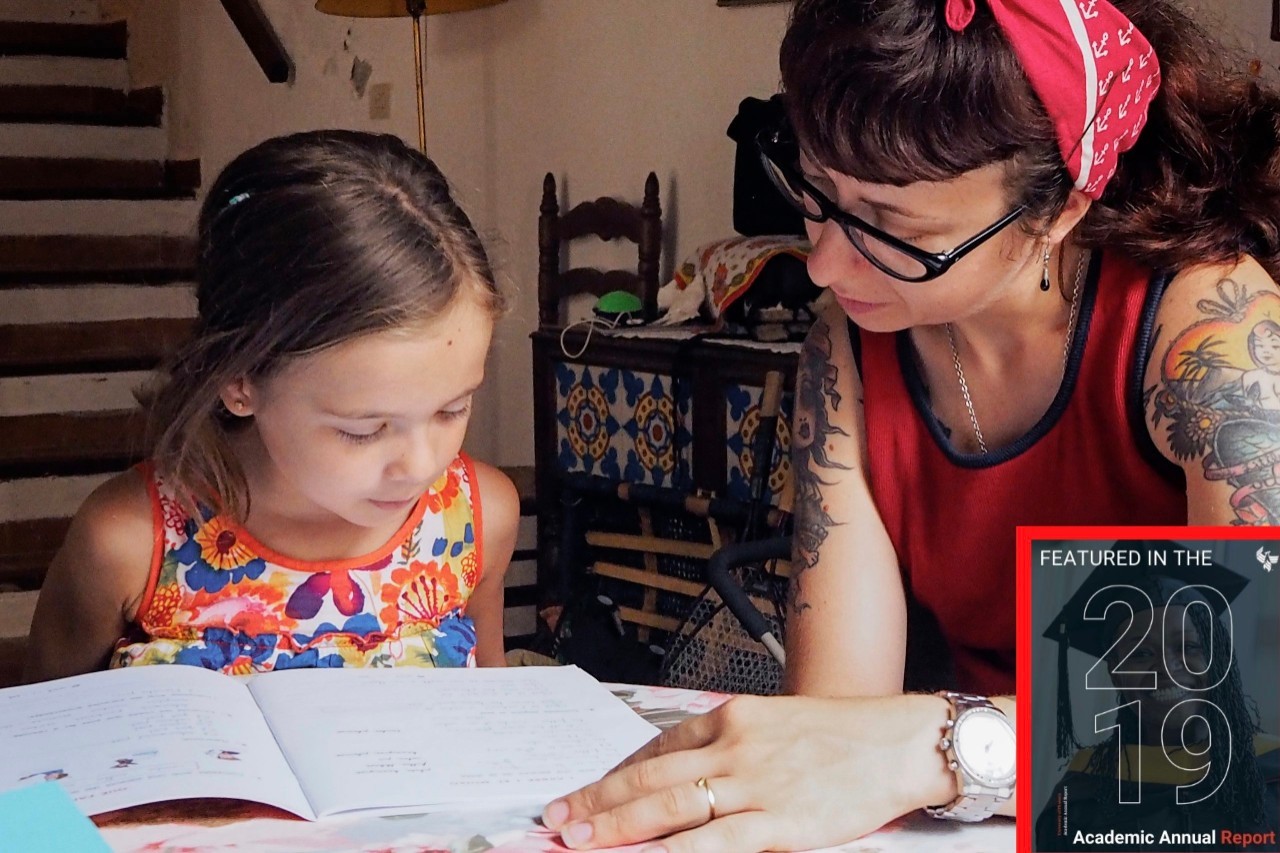
Pilot course flips the script on teaching math concepts
By University of Phoenix
A new UOPX math course designed to match quantitative reasoning concepts to real-life application yields overwhelmingly positive results.
This article is featured in the University’s 2019 Academic Annual Report. Click here to view the report in its entirety.
College students, especially working adults going back to school, typically are not eager to take general education math classes. So when students proactively ask to be put on a waiting list for a math course that is already full ― something special is happening.
This unusual scenario played out at University of Phoenix last October when the College of General Studies teamed up with zyBooks, a Wiley Brand, to develop a pilot math course that included highly contextualized content and more-formative assessments. The pilot was designed to help alleviate math anxiety and make quantitative reasoning content more relatable. The material in the course was taught to align concepts directly with examples through assignments that mirror applications a working adult likely encounters on any given day.
Dr. Jacquelyn Kelly, associate dean for the College, said that the results were overwhelmingly positive.
“You could see them using math and liking it. It was just really cool to see,” Dr. Kelly said. “The way the concepts are introduced and grouped makes learning feel more intuitive and natural.”
Prior to the pilot course, students often said in end-of-course surveys that they were “scared,” “nervous,” or “dreading” general education math courses. But feedback quickly changed once the new pathways were introduced. Student involved in the pilot left remarks like, “I am no longer scared of math,” “I use math a lot more than I realized” and “I feel like I am being set up to succeed.”
The positive feedback extended much further than end-of-course surveys. Other students not yet enrolled in required math courses were contacting the University to request enrollment in the new course, having heard from fellow students that this math class was useful and relatable.
With the positive outcome of the pilot for the quantitative reasoning redesigned courseware, the College of General Studies has rolled it out in all of its quantitative reasoning courses.
Dr. Kelly said that the new design is well-suited for the University’s non-traditional college students – with an average age in the mid-30s – who often use math much more than they realize.
“These are students who make decisions using math every day that matter, like choosing health insurance plans and deciding on the best loan to refinance their home. This is math in action, and these kinds of real-life problems use quantitative reasoning to determine the solution,” she said. “Changing math instruction to better reflect their lives can help students perform better in class, improving their chances significantly of staying in college and can improve their lives in other ways.”
Throughout the course, Dr. Kelly said that students often shared practical applications of their new-found perspective on math. She remembers one student who used lessons from the course to help him better calculate the number of baseboards he needed for a weekend home remodeling project. Other students reported similar experiences, saying that the skills they learned helped them in their daily lives.
The content students learned in the redesigned math course also came in handy when it came to helping their children with Common Core curriculum math homework, Dr. Kelly said. Before taking the redesigned quantitative reasoning pilot course, students reported being “extra freaked out” about math because of the “complex” math problems they were seeing their children do. The approach focuses on breaking out processes step by step rather than memorization or single-step processes, which was very different than the way most parents learned.
Students in the new quantitative reasoning courses reported that their opinion of Common Core math went from “it does not match what I am familiar with” to “In just this first week, my opinion has been altered” and “this will make it easier to help … Really, all parents should look into (this).”
Dr. Kelly said that students also shared in evaluations a new confidence in their math abilities and an eagerness to start the next course in the math progression. Students may not relate to learning about functions, graphing or how rates change over time, but they are interested in real-life applications, like how much money they save when choosing a home loan, which incorporates these concepts.
“Learning a skill is empowering, and so is doing well in a course you once thought was scary,” Dr. Kelly said. “It’s basic math concepts matched to a real-life application.”


